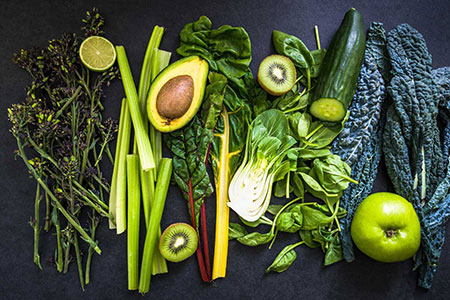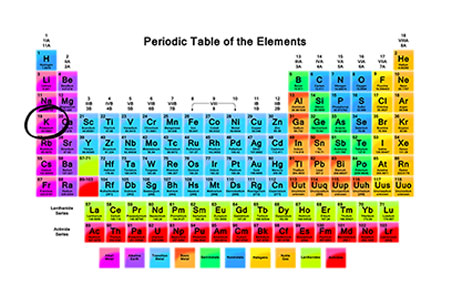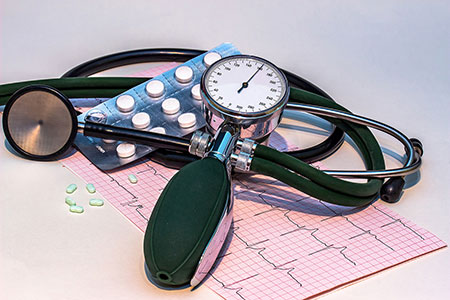Blog

GOING TO POT…..POTASSIUM I MEAN….
I have written previously to sing the praises of magnesium and now I carry thetorch for potassium. Potassium should be the third most common element in your bodybut often, for several reasons. it is not. Many people are on diuretics for their bloodpressure, heart failure, or edema and, unless they are careful with their electrolytes,their potassium can go dangerously low. You have to be careful because certain bloodpressure pills like ACE inhibitors and ARBs can cause your potassium to go too high.Even certain diuretics can be associated with high potassium . Both high and lowpotassium are dangerous. Luckily your doctor can and should be checking this on aregular basis with your bloodwork.




Potassium is crucial for the normal function of your heart, your nervous systemand muscle function. It is also important in blood pressure management. If yourPotassium or Magnesium are too low that can cause your blood pressure to go up.That’s right…a shortage of either element can be a cause of your hypertension. Theseminerals should be checked in every patient with a blood pressure problem and berepleated before your doctor reaches for the blood pressure pills. The reason thatpotassium is important in blood pressure control is because it has a significant effecton muscle contraction and arterial wall relaxation, but most Americans reportedly gethalf of the recommended daily allowance. A banana a day is not enough potassium tomake a real difference in your health. The average reported intake of potassium fromfood is about half of the 4,700 milligrams (mg) recommended. Research demonstratesthat these low levels of potassium may have a significant impact on blood pressure,especially as it relates to the amount of salt normally found in a Western diet accordingto Dr. Paul Welton, professor of epidemiology at Tulane School of Public Health andTropical Medicine, who did an analysis in 1997 of over 29 trials that demonstrated lowlevels of potassium resulted in higher systolic blood pressure readings. According toDr Welton studies performed since then have found similar results.
“The evidence is very strong and very consistent. A higher potassium intakemay blunt the effects of excess salt on blood pressure. Potassium’s effect isbigger in people who have higher blood pressure, bigger in older people,bigger in people who are consuming a lot of salt and bigger in black people.”
Other recent research found that “women without hypertension who consumed themost potassium (nearly 3,200 mg/day) had a 21 percent reduced risk of stroke. Further, women who consumed the most potassium were 12 percent less likely to die during thestudy period than those who consumed the least”
According to a recent review article by Dr Mercola “Potassium should be thethird most abundant mineral in the human body. Adequate amounts of potassium arealso associated with quicker recovery from exercise and improved muscle strength. Asan electrolyte, potassium helps to regulate the fluid balance in your cells and throughoutyour body. Fluid balance is essential to maintaining life, preventing dehydration at thecellular level and maintaining brain function. Potassium is important in the transmissionof nerve impulses in your brain, spinal cord and peripheral nervous system.”
There is evidence that low levels of potassium have been linked with high levelsof insulin and glucose, associated with metabolic syndrome and type 2 diabetes. So ,clearly, keeping your potassium at the right level is important. As I said earlier, if youhave any doubts about your potassium level you can easily have your blood checked butyou have to ask for the more sensitive Red Blood Cell Potassium if you want realaccuracy. As Dr Mercola points out “Getting nutrients from your food instead ofsupplements is preferable as your food contains more than a single nutrient and indifferent forms. For instance, potassium found in fruits and vegetables is potassiumcitrate or potassium malate, while supplements are often potassium chloride. Thecitrate and malate forms help produce alkali, which may promote bone health andpreserve lean muscle mass as you age.
So when you are told your blood pressure is too high, rather than reach for yetanother medication, why not look at your magnesium and potassium intake and theirlevels in your blood and work on the basis of your illness than on just trying to medicateit away. The pills will lower your blood pressure but they don’t address the underlyingcause of your high blood pressure and they have many many side effects. Work withyour doctor to focus on the basics…improving your diet, replacing electrolytes, gettingsome exercise etc. If you don’t manage your wellness the medical profession willmanage your illness but we don’t have a great track record of restoring your health.Remember what Thomas Edison said way back in 1903.
“The doctor of the future will give no medicine, but will interest his patient in the care ofthe human frame, in diet and in the cause and prevention of disease.” Until then…getwell….stay well.

Leave a Reply